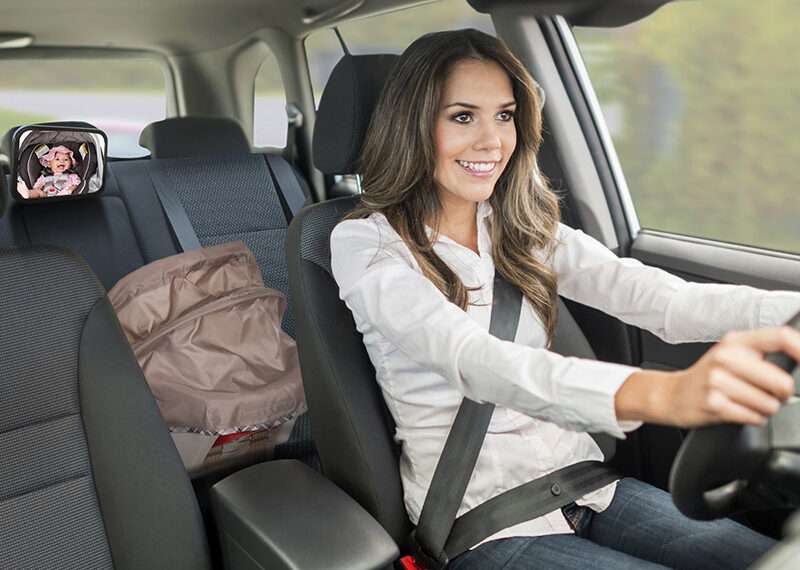
How To Go Abroad With Children can be a rewarding experience, but it also comes with its unique set of challenges. Whether you’re planning a family vacation or relocating to a new country, careful preparation is key to a successful journey. In this guide, we’ll explore the steps you need to take to go abroad with children, ensuring both safety and enjoyment.
10 Top Tips for How To Go Abroad With Children
Taking your first foreign trip with kids over the summer holidays? Our kidsmodelistamagazine shares some advice for a successful break.
1) TAKE YOUR TIME
Traveling with young children can sometimes be a stressful experience, but one way to make sure that the trip runs smoothly is to set aside enough time for you and your family to get organized. As most of us know, simple activities can take longer than expected with kids in tow.
Whether it is getting to the airport with plenty of time before your flight, or, once on holiday, having breakfast a bit earlier to prevent rushing to your next activity, leaving enough time is essential for keeping stress levels low.
2) DON’T FORGET THE MEDICINE
One thing parents often forget to think about is the slim chance of the kids feeling unwell. Traveling abroad means that children are taken out of their daily routine and often subjected to unfamiliar climates and delicious new foods. The combination of these factors can sometimes result in picking up a bug or developing a cold.
3) THINK ABOUT TRAVELING GAMES
Whether you are traveling by plane, bus, car, train, or boat, the journey can often be long, and young children are likely to become bored quickly. It’s a good idea to be prepared and have some family games up your sleeve to distract them.
Eye Spy is a classic, as it encourages them to engage with their surroundings. If you prefer an educational option, try the alphabet game. When you start your journey, your children must look out for something beginning with the letter A, once found, they can then move through the alphabet to see how far they can get.
4) CHECK THE PASSPORTS
Something often overlooked in the excitement of booking a holiday is that, unlike adult passports, children’s ones only last for five years. Make sure you have checked the expiry dates of everyone traveling in your party a couple of months before you go, as passports can take at least four weeks to renew.
While you can get a last-minute, fast-track one, you will have to travel to one of just seven passport offices across the UK, as well as paying a significant fee. It’s not worth the stress.
5) HELPING YOUR CHILD ADJUST
Traveling abroad can be daunting for small children, but there are steps you can take to ensure that they adjust to being away from home and out of their usual patterns more quickly. Before your trip, show your child pictures of the country you are visiting and places you are staying, and talk to them about the trip.
Not only will this encourage interest in the holiday, but it will help to familiarize them with their upcoming surroundings. Once abroad, try to keep your child’s bedtime as close to normal routine as possible, and be sure to pack familiar items like a favorite toy or comforter.
6) CHECK THE AIRLINES REGULATIONS
Many airlines have different rules when it comes to flying with a baby, so to avoid last-minute difficulties, consider them before you book your flights. For instance, one airline will offer infant fare at 10 percent of the adult price, while another will have a set charge.
Some carriers require that you book an additional seat for an infant at least six months in advance, and many have different variations in policy when it comes to free luggage allowance for equipment such as pushchairs, travel cots, and booster seats.
7) PACK A KIDS BAG
Depending on the age of your children, it can be a good idea to provide each one with their own small bag/backpack filled with activities, small games, and snacks. This will give them responsibility for looking after something of their own, as well as plenty of entertainment.
Fill the bag with whatever is likely to engage your child, such as coloring stuff, soft toys, or perhaps a small book. Don’t overfill the bag, as items are likely to be lost, and if your child has packed it themselves then be sure to check what is in it before you set off.
8) MEET & ASSIST SERVICES
If you are carrying lots of bags and feel that you may struggle, check to see if the airport you are flying from offers a ‘meet and assist’ service. This ensures that a member of staff will meet you at your check-in point and help with your bags all the way to the plane.
The service depends on staff availability, but it is worth trying to use it if you can. Some airlines also provide a ‘flying nanny’ for long-haul flights – an extra pair of hands to help keep your children entertained. This is a great service to make use of and ensure that you get to start your holiday as soon as you leave Britain too.
9) ASSIGN A MEETING POINT
We never intend to lose sight of our children, but amid the stress of traveling and being in a new country, they can sometimes wander off and panic. While this may seem like an unlikely scenario, it’s a good idea to preempt the possibility and assign a designated meeting spot.
10) TRAVEL JOURNAL
There are bound to be pointed in the trip where you have some waiting time and the family games have run out, so a great way to ensure the children have something to do is to encourage them to keep a travel journal.
This can be as simple as a small notebook that they draw or write in, and you can turn this into a family activity by helping collect mementos to include. Not only will this entertain the children and give them an important creative outlet, but it will also provide them with a wonderful book of memories to look back on in years to come.
Planning Your Trip
- Research Your Destination
Before embarking on your journey, research your destination thoroughly. Consider factors like the local culture, climate, and healthcare facilities. Ensure that the place you’re visiting is child-friendly, with activities and amenities suitable for kids. - Passport and Visa Requirements
Make sure you have valid passports for both you and your children. Some countries may require specific travel documents or visas for minors. Check the entry requirements for your destination and apply in advance if necessary. - Vaccinations and Health Precautions
Consult your healthcare provider about necessary vaccinations for your destination. Ensure that your children are up to date with their routine vaccinations. Pack a basic first-aid kit with child-specific medications.
Packing Essentials
- Travel Documents
Organize all your travel documents in one secure place. This includes passports, visas, birth certificates, and travel insurance. Make photocopies or digital backups, and share them with a trusted family member or friend. - Pack Smart
When packing for your trip, keep your children’s needs in mind. Don’t forget essentials like diapers, baby food, and favorite toys. Pack clothing suitable for the destination’s climate and consider travel-sized baby gear to save space. - Childproofing Items
If you have young children, carry childproofing items such as outlet covers and cabinet locks. Ensure your accommodation is safe for your child by removing potential hazards.
Traveling with Kids
- Entertainment
Long flights or road trips can be challenging for children. Prepare with entertainment, such as books, games, and movies. Consider noise-canceling headphones for your child’s comfort. - Snacks and Hydration
Bring a variety of snacks and a refillable water bottle to keep your children nourished and hydrated during travel. Airport security allows baby formula, baby food, and breast milk in reasonable quantities. - Safety First
Always prioritize safety. Use appropriate car seats or booster seats for road travel. Teach your child about stranger danger, and ensure they have identification with your contact information.
Arrival and Stay
- Accommodation
Choose child-friendly accommodation that provides amenities like cribs and high chairs. Ensure your lodging is in a safe neighborhood and near essential services. - Local Activities
Research family-friendly activities at your destination. Museums, parks, and zoos are great options. Be flexible with your schedule to accommodate your child’s needs. - Emergency Contacts
Have a list of emergency contacts handy, including local healthcare providers and the nearest embassy or consulate. Know the local emergency number for immediate assistance.
Conclusion
Traveling abroad with children can be a memorable adventure. Proper planning and preparation are vital for a smooth and enjoyable experience. By considering your destination, packing essentials, and ensuring your child’s safety, you can create lasting memories while exploring the world with your family. So, get ready to embark on an exciting journey with your little explorers and make it a trip to remember.
kidsmodelistamagazine



































